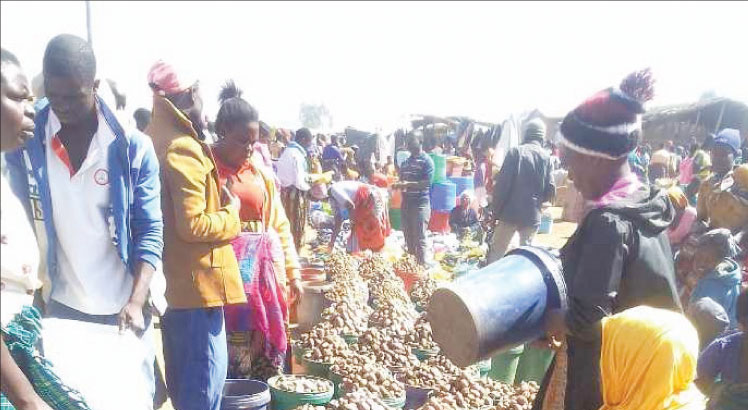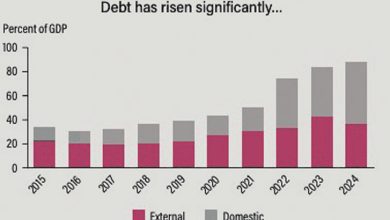Malawians’ struggle at Bembeke Turn-off Market
For Lucy Sinnsamala, a tomato farmer, and Evelyn Maganga, an Irish potato farmer, selling their produce at Bembeke Turn-off Market is a daily struggle.
Despite their hard work, they face stiff competition from fellow farmers, and recent devaluations of the kwacha, which have reduced people’s buying power, have also affected them.
“The market is flooded with tomatoes and potatoes and it’s hard to sell our produce at a good price,” Sinnsamala said.
Maganga added: “The kwacha devaluation has increased the cost of inputs such as seeds and fertilisers. Our profits are dwindling.”

Maize farmers Charles Banda and Chikondi Chipeni share similar concerns.
“We cannot compete with the prices offered by bigger farmers and it’s like they’re selling at a loss,” said Banda while Chimpeni said the market is unpredictable.
“Sometimes we sell, sometimes we don’t. It’s hard to plan for the future,” said Chipeni.
The farmers’ challenges are compounded by the kwacha devaluation, which has made imports cheaper.
But these farmers are too committed to their business to give up easily. They are taking measures to eliminate problems to enable them to stay afloat.
Sinnsamala has started using organic farming methods to reduce costs and increase her yield.
“I am using natural pest control methods and composting to fertiliser my soil,” she explained.
Maganga has formed a cooperative with fellow farmers to input in bulk and, also, negotiate better prices.
“We are stronger together,” she said.
Banda and Chipeni are exploring new markets, selling their maize to processors and animal feed manufacturers.
“It’s a more stable market,” Banda said.
Additionally, they’re improving their post-harvest handling techniques to reduce losses.
Said Chipeni: “We are using better storage facilities and transportation to get our produce to the market faster.”
The farmers are also receiving training and support from local organisations such as the Malawi Agricultural Development and Marketing Corporation and the Farmers Union of Malawi.
“We are learning new techniques and getting access to better markets,” said Sinnsamala.
Despite these challenges, the farmers remain resilient and optimistic about their future.
“We are not just farmers, we are the backbone of Malawi’s economy,” enthused Maganga.
He concluded: “We’ll find ways to overcome these challenges and continue feeding our nation.”





